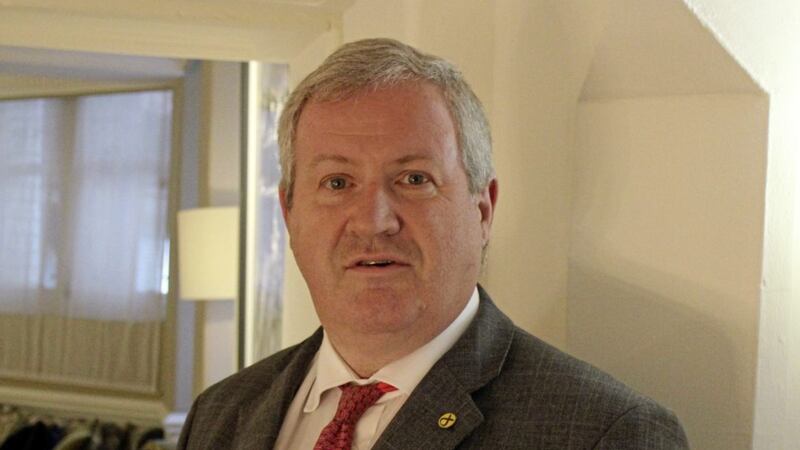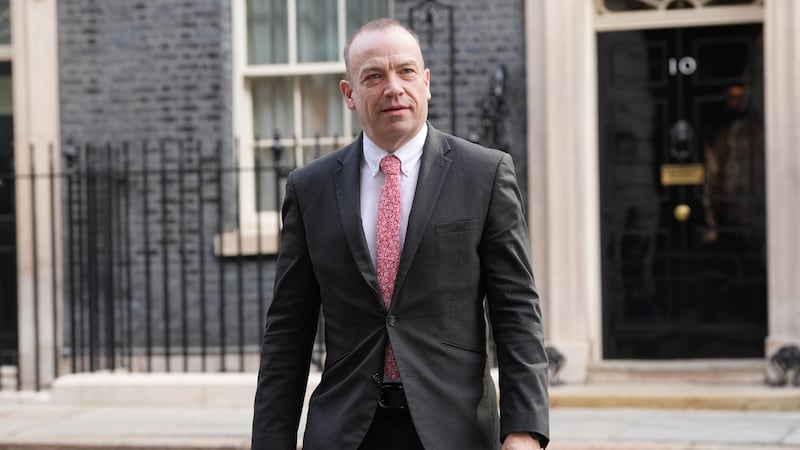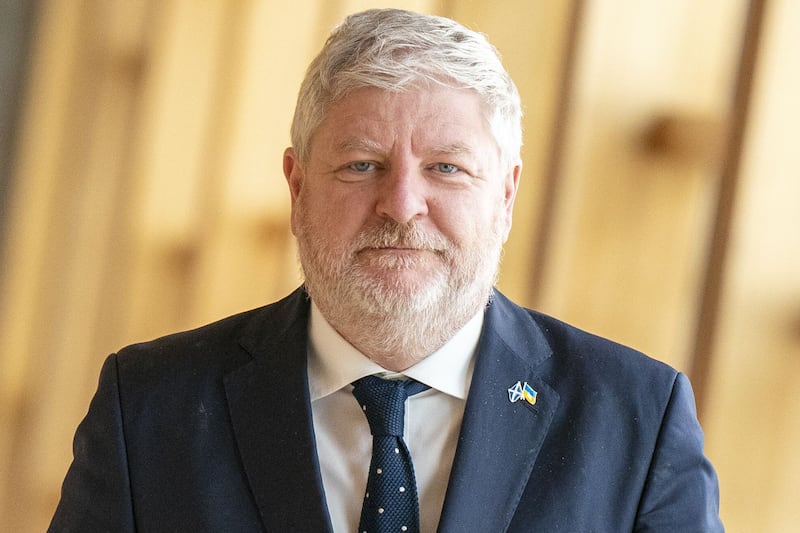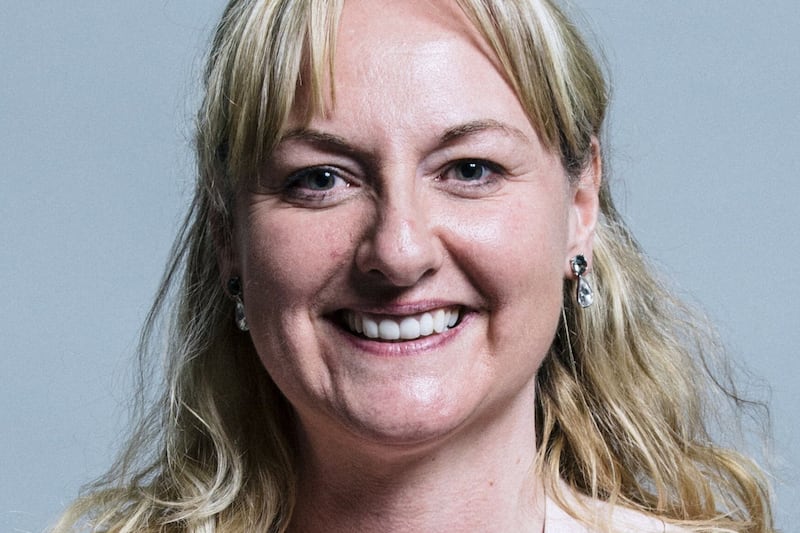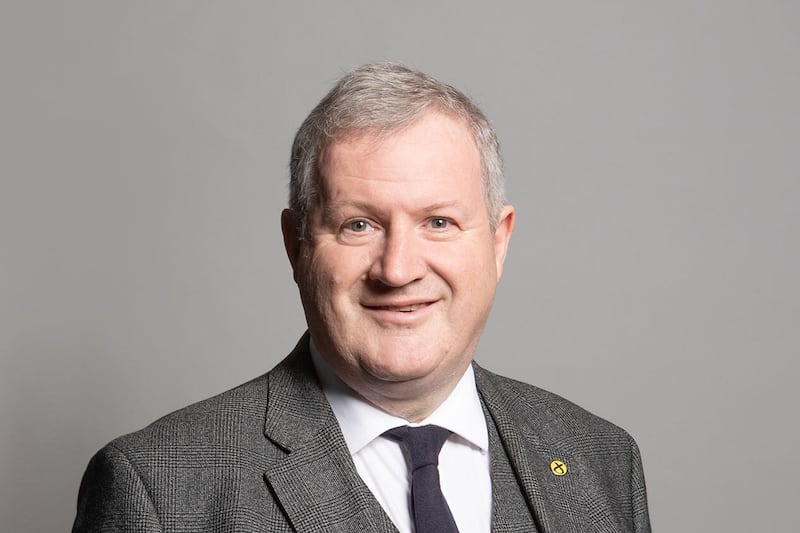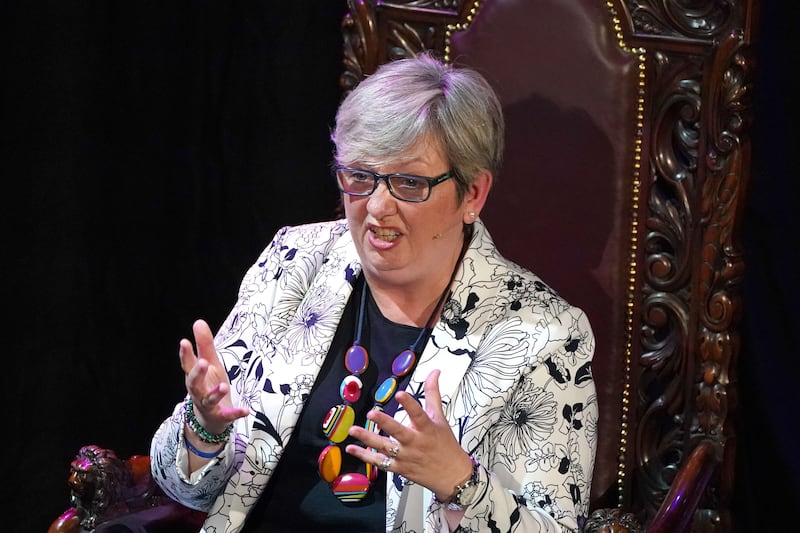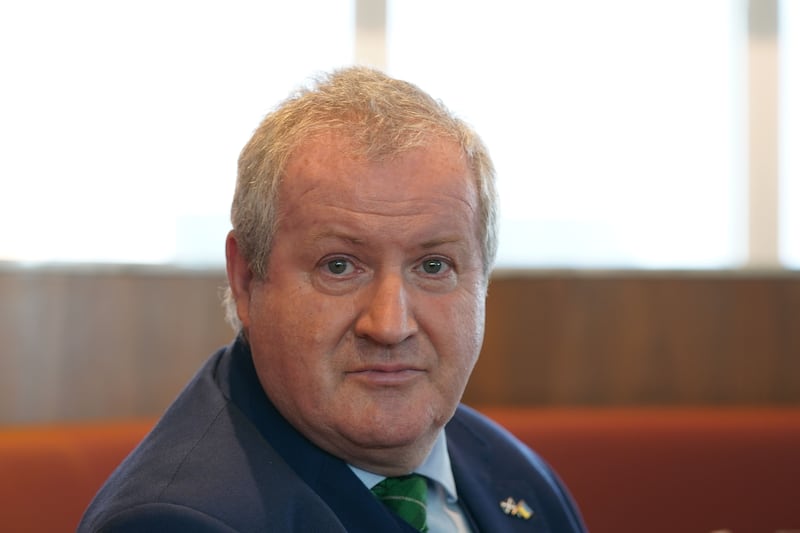IAN Blackford styles himself "very much a working class boy and on the left”. The 58-year-old was raised in the Muirhouse housing scheme in Edinburgh and his professional career began with NatWest bank, where he started as a clerk. He rose quickly through the ranks and by the late 1990s was managing Deutsche Bank's equity operations in Scotland and the Netherlands.
"It doesn't make me a bad person," he jokes about his previous role in the world of finance.
He's been active in the SNP for decades but his political career took off in 2015 when as part of his party's post-independence referendum surge, he took the Ross, Skye and Lochaber seat from former Liberal Democrat leader Charles Kennedy, securing a majority of more than 5,000. These days the keen Hibernian supporter lives in Skye, where he's a part-time farmer, with a 100-strong herd of sheep.
Blackford has come to prominence in recent years as the SNP's leader in Westminster. Personable, articulate and occasionally combative, in many regards he's representative of Scotland's growing self-confidence. His main focus at present is to avoid the potential damage inflicted on his country by Brexit - the outcome of a referendum rejected by the Scottish electorate much more decisively than the opportunity for independence had been two years previously.
He speaks to The Irish News in Edinburgh's plush Balmoral Hotel, where in a previous life he once fulfilled the role of disc jockey. He's in the Scottish capital with fellow MP Mhairi Black as the pair embark on a series of public engagements designed to "make the case for independence".
Even before the 2016 EU referendum, the appetite for a second independence referendum in Scotland was strong but Brexit, and more recently the increased prospect of no-deal, has seen what Blackford describes as a "tide of support" for breaking away from the UK. He famously marked Boris Johnson's victory in the Tory leadership contest by welcoming him to Westminster as the "last prime minister of the United Kingdom”.
Read More
- Scotland's knotty road to independence
- Scottish independence is 'winnable' says consultant who worked for unionist Better Together campaign
The change of personnel at Downing Street and the growing risk of a hard Brexit has made Blackford doubly determined, putting him on what he describes as a "war" footing.
"This is very different from facing Theresa May, because this group of people are ideologues and for all the imagery of Boris Johnson the buffoon and all the rest of it, the people around him are dangerous individuals," he says of the current Conservative leadership.
"They are absolutely determined to crash the bus and want to destroy anyone that stands in the way of them doing that."
He believes a no-deal will not only have negative economic implications for Scotland but also damage it socially and culturally.
"We've gained so much from being a part of the European Union and when the UK is prepared to take those rights away from us, we can't just sit back and accept it," he says.
Read More
- Brexit: How this week could unfold as MPs try to stop no deal
- No-deal Brexit plans to involve 'turning a blind eye' at border
The SNP MP cites a Treasury report from last year which forecast that UK GDP would shrink by 2-10 per cent over the next 15 years. The higher figure, Blackford says, refers to a hard Brexit.
"We're actually talking about an impact on the economy that is four times the scale of the financial crisis in 2008," he says, adding that he's unable to rationalise such an "act of such self-harm".
"For what?" he asks rhetorically. "For ideology - because they want to create a 1950s Britain of the empire."
His concerns about Brexit are not solely focused on Scotland and extend across the North Channel to Ireland, where he believes "21 years of relative peace is being put at risk” by the potential for the recreation of a hard border.
He's full of praise for the Dublin government and Tánaiste Simon Coveney in particular, who he describes as a "giant".
"He's spoken with real clarity, real vision and a real understanding of what all this means and it's just a pity that I can't think of anyone on the UK
government side that has the same degree of insight and understanding of the situation as he has," he says.
"Thank goodness that not just the Irish government but the EU 27 have stood together."
Blackford is also an advocate for the backstop, characterising it as "recognition of what is required to be delivered through the Good Friday Agreement".
"Of course it's right that the backstop is there - and thank goodness," he says.
He's reticent when it comes to the DUP and what he regards as its failure to acknowledge that Northern Ireland will be "very severely damaged by any form of Brexit and in particular a no-deal Brexit".
"They've got to reflect on their own actions and of course there are other voices in the north of Ireland and it's important they are given the oxygen of publicity in this debate," he says.
The SNP’s manifesto for the 2016 Holyrood election, which came a matter of weeks before the EU referendum, said the party would seek a second vote on independence if there was a “significant and material” change in the circumstances that prevailed two years previously, such as Scotland being taken out of the EU against its will.
Blackford says the party has a “mandate from a majority of the Scottish people for a referendum” and that MSPs are currently passing legislation to create the mechanisms for a vote, which is said to require the consent of the British government.
"There will come a time when we will have to have a conversation with the government in London,” he says.
“There's a long-established principle that it's the people of Scotland who have sovereignty not the Westminster parliament.”
In terms if its timing he says the SNP would “prefer to have that referendum as early as is practicably possible – but I'm not going to put a date on it".
In terms of the majority needed to secure independence, Blackford is clear that 50 per cent plus one will be adequate but he wants to "create the momentum where there will be a substantial majority for independence".
Saying that the SNP wants to build an inclusive "big tent” and sees it as a failing of Theresa May that she didn’t recognise that Brexit was endorsed UK-wide by a narrow margin.
“Even in the situation where we win a referendum and there's a substantial number of people who have expressed a desire to remain within the UK, we have to understand and respect their feelings; we have to respect the way they have voted and the way that they think," he says.
“We need to reach an accommodation with absolutely everybody in Scotland for the country we want to build because it has to be about building a country that is inclusive and recognising the damage the whole Brexit debate has caused over the last three years.”
He rejects comparisons between the upheaval caused of the UK’s efforts to extricate itself from the EU and the potential for similar disruption around Scottish
"The two situations are not comparable - the UK has tied itself in up knots and in particular over the red lines Theresa May created – having no logical position as to what the future relationship should be between the UK and the EU, particularly around the single market and the customs union,” he says.
“Quite simply, we don't carry that baggage – it is completely different.”
He points to the SNP’s 650-page white paper ahead of the 2014 referendum setting out what an independent Scotland would look like.
“Whereas with Brexit what you had was a slogan on the side of a bus,” he adds.
A key problem for the British government, he says, is that there has “never an expression of what the UK really wanted”
“Part of the difficulty here is that there is nothing better than the current deal that we have from Europe - we get tremendous benefits from being in the single market and the customs union – you cannot create an alternative to that because it doesn't exist,” he says.
